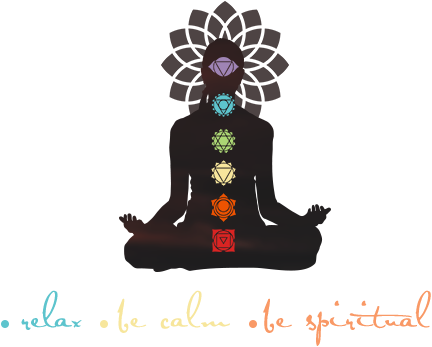I get a lot of patients and clients who want to do a complete 180 on their eating patterns by making drastic dietary changes....
Nutrition is an every changing field with lots of misinformation, marketing, and honestly some woo-woo pseudoscience (and this is coming from someone who loves a bit of woo). Dietitians are some of the foremost experts in this field, so we get asked a lot of questions. Here are some that I hear most frequently:
Which diet is best? Keto? Mediterranean? Paleo? Etc.

This answer isn’t super cut and dry. It’s very much based upon the individual as there is no ‘one size fits all’ approach to nutrition. Health conditions, labs values, personal goals, and even belief systems influence what style of eating may work best for an individual.
Did you notice I said ‘style of eating’ and not ‘diet’? That’s because we generally don’t like to utilize the D-word since it implies a sense of restriction and rules. We prefer frameworks and patterns, not list of do’s and don’ts.
Unless you have a true justification for strict food rules, as determined by your healthcare providers, we encourage people to follow the Dietary Guidelines for Americans set forth by the U.S. Department of Health and Human Services (HHS) and the U.S. Department of Agriculture (USDA). These are recommendations for healthy living based on age and gender.
Working with a Registered Dietitian however will give you a better ideas of what style of eating is going to work best for you and any medical concerns that you have. I’m not tooting our own horn for no reason. These nutrition experts are the ones who use evidence based recommendations to help you achieve your goals without partaking in practices that could potentially harm you.
Just remember that a pretty face and great body on social media doesn’t equal ‘educated professional’. Those who are recommending specific (and sometimes extreme) diets to everyone isn’t coming from a place of legitimacy.
What about diet pills/shots? Can you prescribe those for me?

Not going to lie. If a dietitian hears this, they are likely cringing inside. As I’m writing this, I was just asked these questions by a seventeen year old patient. They weren’t the first and certainly not the last.
We live in a society that wants instant results for everything. Don’t believe me? Take note of how you feel the next time a webpage doesn’t load immediately.
For years everyone has wanted a simple solution to weight loss. To many, that means popping a pill every day and hoping the pounds just melt off.
However, these pills that claim to increase your metabolism, prevent your body from absorbing fat, and the like. What everybody forgets to think about are the side effects. Some of these include nutrient deficiencies, GI disorders, fatigue, pain, possible kidney and liver problems, and even tooth/gum disorders.
I’ve also seen numerous patients on medications that are considered weight loss agents who haven’t made much progress in their weight loss journey. This is because these meds aren’t a silver bullet for weight management. They are intended to supplement a healthy lifestyle.
Now – I’m not saying that there isn’t a time and a place for medications, but I’m really stingy with recommending them. Just wanting to take them because you don’t want to change to a healthier lifestyle or accept that the journey may be long isn’t going to get a health professional to prescribe these.
Should I go gluten free to lose weight?

facepalm No. Just No.
A gluten free diet has a very specific medical condition for which it is the only option: Celiac disease (which is present in 1-2% of Americans)
Almost a decade ago, a study came out linking gluten to pretty much every malady people complain about…fatigue, bloating, weight gain, trouble sleeping, and more. Now, those with non-celiac gluten sensitivity (about 6%) can benefit from reducing gluten. However, before you go WebMDing yourself and assuming that you have it, go see a medical professional. There are tests to confirm this.
Like a lot of fad diets, you may hear people proclaiming from the mountaintops how much better they feel after going gluten free. The most likely cause for this? They overhauled a generally unbalanced diet and started making better, more informed choices. It’s a very placebo effect like occurrence.
If you believe that celiac disease is a concern, please work with a medical provider to confirm this before trying to solve anything on your own.
I’ve been told to reduce my sodium, but I don’t add salt to my food. Isn’t that good enough?

Salt is a sneaky thing, and it’s hiding in all sorts of foods. What comes out of the salt shaker only constitutes about 11% of our sodium consumption. Nearly 71% comes from commonly consumed foods like restaurant, packaged, and processed foods.
Where does that other 18% come from? Natural sources like what is found (in smaller quantities) in vegetables, milk, and even water make up that remainder.
When you’re told to reduce your sodium intake, it’s not just about the salt shaker. Moving away from processed foods to ones that are more whole will make the biggest difference.
This may mean incorporating some more significant changes, like learning to cook, meal planning, and trying new foods. The closer a food it to it’s original source and form, the more nutritious it will be.
If you find yourself having a hard time getting away from foods that come in a package, the biggest thing you can do to help reduce your sodium is to read the label. The number we most often recommend is 140mg per serving. This helps to give you an idea of which foods may be a better choice than others.
Just remember that when food manufacturers remove one thing, they often increase another, like fat or sugar. Label reading involves more than looking at a single nutrient. To learn more about the nitty gritty of this, you can read more it in this article.
I’m following an apps caloric recommendation. Why am I not losing any weight?

Try as they may, apps just don’t take into account the different variables as well as someone who is trained. This often results in people being told by this app that they should be eating far less than what a dietitian would recommend.
I’ve had numerous patients who have shown me their apps and that they are trying to stay around 1200 calories per day. A little probing then leads to the admittance that they feel deprived, tired, and that the scale hasn’t budged much.
Personally, I don’t think I’ve ever really recommended any adult eat only 1200 calories. Our bodies need fuel, and without an appropriate amount, our bodies don’t do what we want them to. There are non-professionals who are recommending people only eat 800-900 per day (who are not bariatric recipients), which is even lower than most apps will automatically calculate.
Here’s the thing, our bodies don’t always get what our brains are doing. We may be thinking “if I eat X calories, then I’ll drop the weight really quickly” but our bodies start sending out SOS signals and holding onto everything you DO put into it because it thinks you’re trying to starve it to death and it will do whatever it can to prevent that.
A dietitian is able to more accurately determine how many calories you need for weight loss, but even then, there are a lot of variables that may result in tweaking as time goes on.
Don’t get me wrong, I enjoy the use of apps to help learn about what we’re really consuming as well as monitoring things overtime. What I don’t love, however, is that it’s too easy to put in our measurements, say we want to lose 2 pounds per week, and then try to adhere to the minimum amount of calories that the app with allow.
The bottom line is that an extreme caloric deficit is more likely to hinder your goals than help them.
Final Word
I’ve had some pretty strange questions thrown at me as a practicing dietitian, but these are some of the ones I hear the most. There really is no such thing as a foolish question and it’s a much better idea to pose those related to nutrition to a dietitian instead of Dr. Google.
Do YOU have a burning question? Use the comment section below to let me know!





